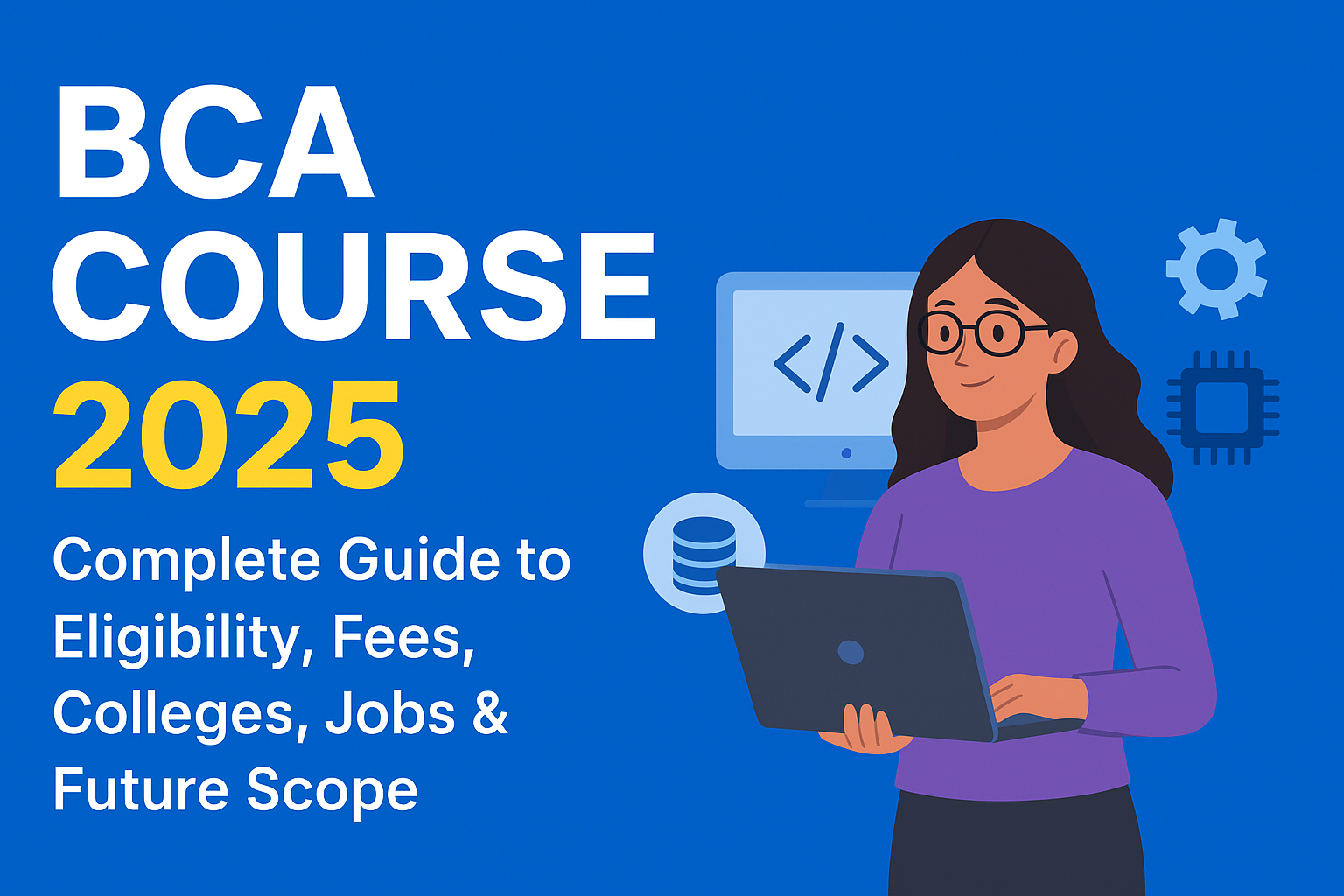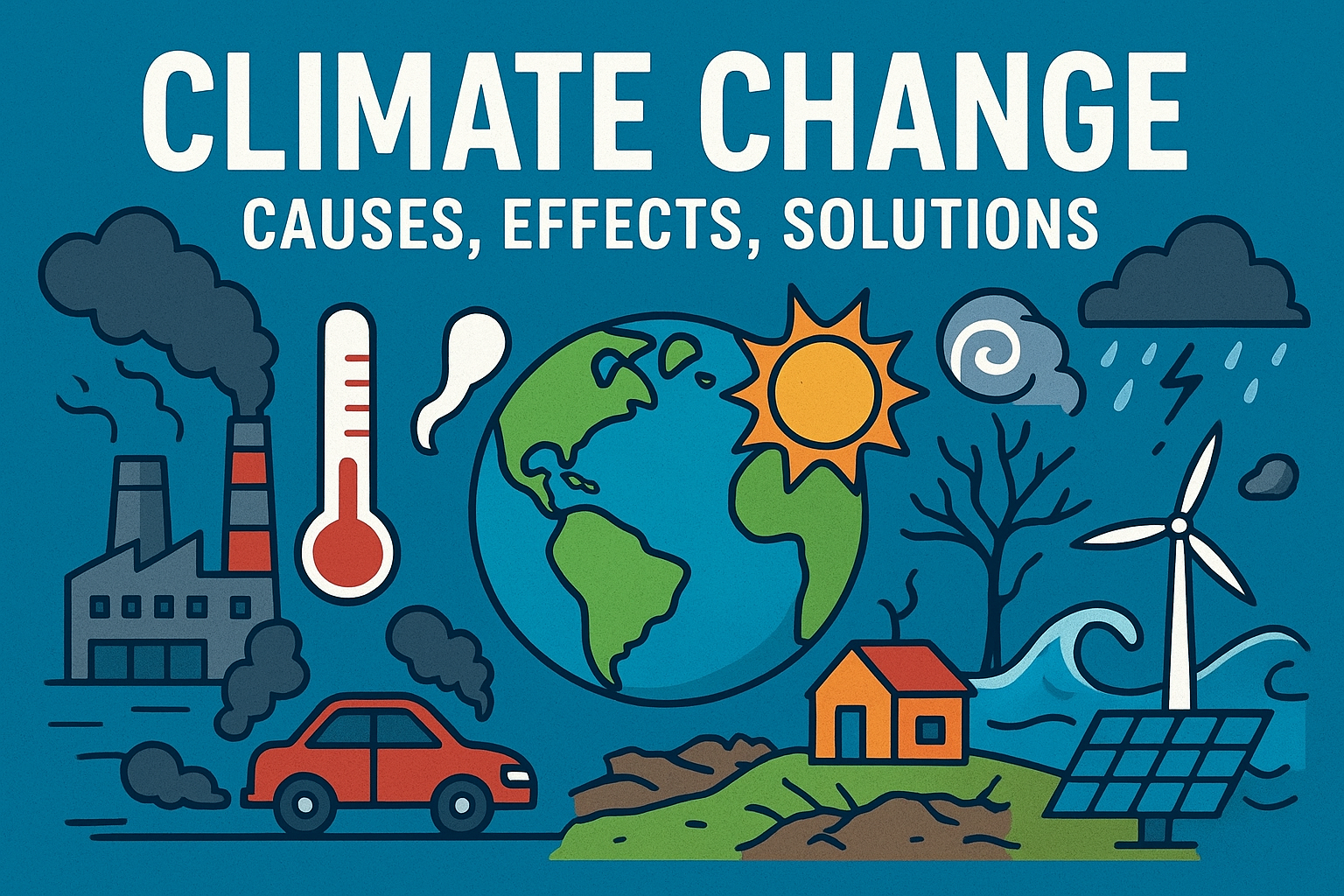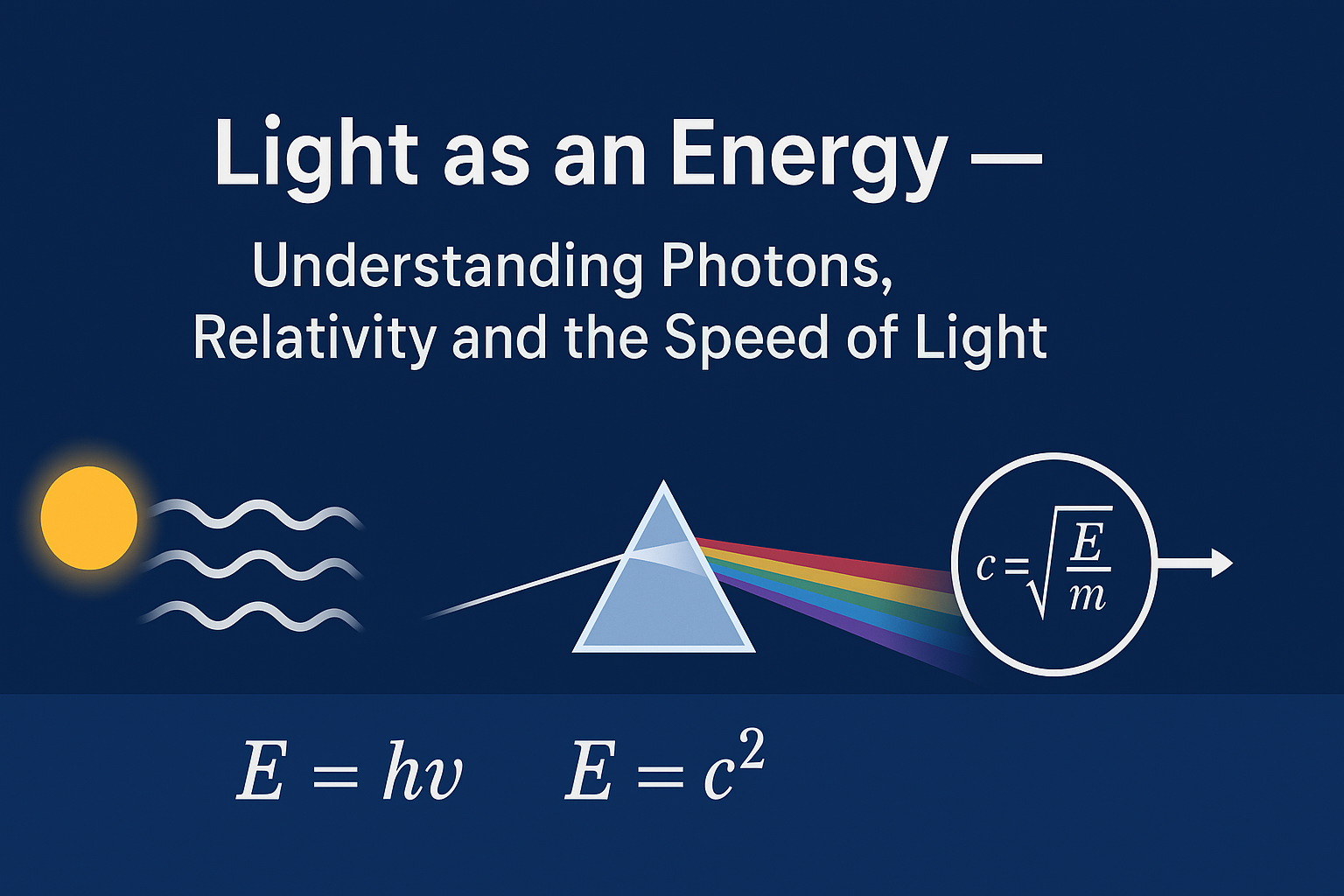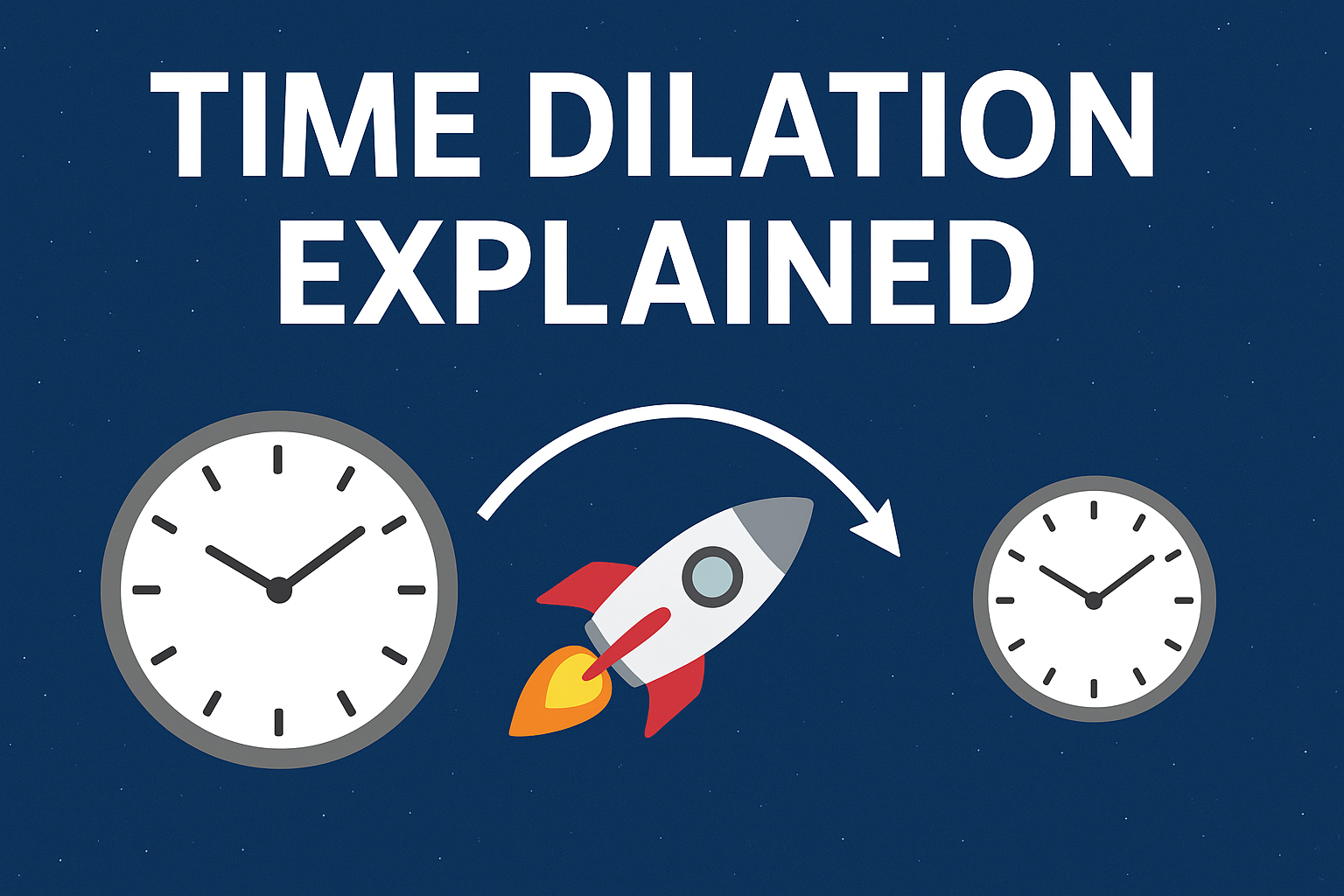Bachelor of Computer Applications (BCA) – Complete Guide
Introduction to BCA
Bachelor of Computer Applications (BCA) is a three-year undergraduate program designed for students who want to build a career in the field of computer science, software development, and information technology. The course focuses on computer fundamentals, programming languages, database management, web technologies, networking, and modern IT tools. BCA is one of the most popular choices for students who are passionate about coding, application development, and technology-driven problem solving.
With the rapid growth of the IT industry in India and across the world, BCA has become a highly demanding professional degree. It opens doors to numerous job opportunities in software companies, startups, government IT departments, and even provides a strong foundation for higher studies like MCA (Master of Computer Applications), MBA in Information Technology, or specialized certifications.
Eligibility Criteria
The eligibility criteria for BCA vary slightly from one university to another, but in general, candidates must have completed their higher secondary education (10+2) from a recognized board. Students from any stream—Science, Commerce, or Arts—are eligible, although having Mathematics or Computer Science in 12th standard is often preferred.
Required 10th and 12th Percentage
Most universities and colleges require a minimum of 45% to 50% marks in 12th standard. Some top universities and private institutes may demand at least 55% to 60% in aggregate. For students from reserved categories (SC/ST/OBC), relaxation of 5% is often provided as per government norms.
For the 10th board examination, there is generally no strict percentage requirement, but a good academic record (above 50%) helps during the admission process. Candidates should check specific college websites for precise cut-off details.
Course Duration and Structure
BCA is typically a 3-year program divided into six semesters. Each semester covers theoretical subjects, practical labs, and project work to ensure students gain both academic knowledge and hands-on experience. Some universities also offer a 4-year BCA (Hons.) program that includes an additional year for industry training, internships, or research.
The curriculum usually includes:
- Programming Languages (C, C++, Java, Python, etc.)
- Database Management Systems (DBMS)
- Computer Networks and Operating Systems
- Web Development and Internet Technologies
- Data Structures and Algorithms
- Software Engineering and Project Management
- Mathematics and Statistics for Computing
Many colleges encourage students to take up internships, live projects, and industrial training during the final semester to prepare for real-world challenges.
Why Choose BCA?
Choosing BCA offers a blend of theoretical knowledge and practical skills that are directly relevant to the IT industry. Unlike general science or commerce degrees, BCA is highly specialized and focuses on creating skilled professionals who can work as software developers, data analysts, system administrators, and IT consultants immediately after graduation.
Fee Structure of BCA
The fee for BCA varies depending on whether the college is a government institution, a private university, or a deemed university. On average, the fee structure in India ranges from ₹30,000 to ₹1.5 lakh per year. Government colleges usually have lower tuition fees, while private universities and internationally affiliated institutes charge higher fees due to advanced infrastructure and placement facilities.
- Government Colleges: ₹20,000 – ₹60,000 per year
- Private Colleges: ₹50,000 – ₹1.5 lakh per year
- Deemed/International Universities: ₹1.5 lakh – ₹4 lakh per year
Apart from tuition, students may need to pay additional charges for examination fees, lab usage, internet services, and development activities. Scholarships are available in many universities for meritorious students and those from economically weaker sections.
Top BCA Colleges in India
India has several renowned universities and colleges offering excellent BCA programs with modern infrastructure, skilled faculty, and strong placement records. Below are some of the top names:
- Christ University, Bangalore
- Symbiosis Institute of Computer Studies & Research (SICSR), Pune
- Loyola College, Chennai
- St. Xavier’s College, Mumbai
- Amity University, Noida
- Vellore Institute of Technology (VIT), Vellore
- Lovely Professional University (LPU), Punjab
- Presidency College, Bangalore
- Banaras Hindu University (BHU), Varanasi
- Jamia Millia Islamia, New Delhi
These colleges are known for their up-to-date curriculum, excellent labs, industry collaborations, and high placement packages. Admission is often based on merit or entrance exams such as SET, CUET, or institute-specific tests.
Top BCA Colleges in the World
While the BCA program is primarily popular in India, similar undergraduate computer application degrees are offered worldwide. Some globally recognized universities providing equivalent courses include:
- Massachusetts Institute of Technology (MIT), USA
- Stanford University, USA
- University of Cambridge, UK
- University of Toronto, Canada
- National University of Singapore (NUS), Singapore
- Australian National University, Australia
- ETH Zurich – Swiss Federal Institute of Technology, Switzerland
- Carnegie Mellon University, USA
Though the course names may differ—such as Bachelor of Computer Science or Bachelor of Information Technology—the core curriculum often overlaps with BCA, focusing on programming, software engineering, and IT systems.
Specializations in BCA
Many universities offer specializations within the BCA program to help students focus on specific areas of interest. Some popular specializations include:
- Artificial Intelligence & Machine Learning: Focuses on AI programming, deep learning, and automation.
- Cyber Security: Covers ethical hacking, data security, and cybercrime prevention.
- Data Science & Analytics: Deals with big data processing, predictive analytics, and data visualization.
- Cloud Computing: Teaches cloud architecture, virtualization, and distributed computing.
- Mobile Application Development: Focuses on Android/iOS app development using modern frameworks.
- Web Development: Covers front-end and back-end programming for dynamic websites.
- Internet of Things (IoT): Focus on embedded systems and smart device programming.
Choosing a specialization helps students gain advanced skills that match current industry demands, making them more competitive in the job market.
Job Opportunities After BCA
One of the biggest advantages of pursuing BCA is the wide range of job opportunities it offers in both the private and government sectors. Graduates can work in software development, IT services, finance, healthcare, education, and almost every industry that relies on technology.
Popular job roles for BCA graduates include:
- Software Developer: Designing and building computer programs, applications, and systems.
- Web Developer: Creating dynamic websites and web applications using front-end and back-end technologies.
- Mobile App Developer: Building Android and iOS applications using frameworks like Flutter, React Native, or native languages.
- Database Administrator: Managing and maintaining databases, ensuring security and performance.
- System Analyst: Analyzing IT requirements and designing solutions to improve organizational efficiency.
- Network Administrator: Managing computer networks, troubleshooting connectivity issues, and ensuring secure communication.
- Data Analyst: Interpreting complex data to help companies make informed business decisions.
- Cybersecurity Expert: Protecting computer systems and networks from cyber threats and attacks.
- Cloud Engineer: Deploying and managing cloud-based services like AWS, Azure, and Google Cloud.
Many BCA graduates also work as freelancers or entrepreneurs by starting their own software development or IT service companies. The rise of remote work and global outsourcing has increased opportunities for BCA professionals to work with international clients.
Demand for BCA Graduates
The demand for skilled IT professionals continues to grow globally. With digital transformation in almost every sector, BCA graduates are highly sought after in industries such as e-commerce, banking, cloud computing, artificial intelligence, and cybersecurity.
According to recent industry reports, India’s IT sector is projected to grow at a rate of over 10% annually, creating millions of new jobs in the coming years. International markets like the United States, Europe, and Australia are also hiring Indian IT talent for remote and on-site roles.
Future Scope of BCA
The future scope of BCA is extremely promising due to the ever-increasing dependence on technology. After completing BCA, students can either start working immediately or pursue higher education to enhance their career prospects.
- Higher Studies: Many graduates opt for a Master of Computer Applications (MCA), which provides advanced knowledge of software engineering, data science, and networking. Others choose to pursue an MBA in Information Technology to enter management roles.
- Specialized Certifications: Professional certifications like AWS Cloud Architect, Google Data Analytics, Microsoft Azure, or Cybersecurity credentials can significantly boost career growth.
- International Opportunities: BCA graduates with strong coding and analytical skills often find job placements in multinational companies or pursue master’s degrees abroad.
Emerging technologies like Artificial Intelligence, Machine Learning, Blockchain, Quantum Computing, and Internet of Things (IoT) will continue to create new roles for BCA professionals in the next decade.
Benefits of Studying BCA
BCA offers a unique blend of affordability, flexibility, and industry relevance. Some key benefits include:
- High Career Growth: IT is one of the fastest-growing industries with a consistent demand for skilled professionals.
- Global Opportunities: BCA graduates can work for international companies or freelance for clients worldwide.
- Entrepreneurship: The knowledge of programming, web development, and software design allows graduates to start their own tech businesses or startups.
- Affordable Education: Compared to engineering degrees, BCA is often more cost-effective while offering similar career outcomes.
- Flexibility: Students from any stream (Science, Commerce, Arts) can pursue BCA if they have a passion for computers.
Public Review and Student Experiences
Public opinion about BCA is generally positive due to its practical curriculum and career-focused approach. Students appreciate the balance of programming, mathematics, and real-world applications. Graduates frequently highlight that BCA provides a strong foundation for entering the workforce directly or pursuing advanced studies.
Alumni from top colleges often share success stories of securing high-paying jobs in IT companies like TCS, Infosys, Wipro, IBM, Google, and Microsoft. However, students also emphasize the importance of continuous learning, as technology evolves rapidly and requires regular skill upgrades.
Comparison of BCA with Other Courses
Many students often compare BCA with other undergraduate programs like B.Tech (Computer Science), B.Sc IT, or BBA in Information Technology. Each course has unique benefits, and the choice depends on career goals, budget, and interest.
BCA vs B.Tech (Computer Science)
- Duration: BCA is a 3-year course, while B.Tech is 4 years.
- Focus: B.Tech covers deeper engineering concepts, hardware knowledge, and advanced algorithms, whereas BCA focuses on software applications, programming, and IT management.
- Cost: BCA is generally more affordable than B.Tech.
- Career Outcome: Both lead to jobs in IT companies, but B.Tech graduates may have an edge in core development or engineering roles.
BCA vs B.Sc IT
- Curriculum: B.Sc IT emphasizes theoretical concepts and research, whereas BCA is more practical and application-based.
- Opportunities: BCA students often receive better placement support because of the industry-oriented syllabus.
BCA vs BBA (IT)
- Objective: BBA IT combines management and technology, focusing on business operations with IT skills. BCA, on the other hand, focuses primarily on programming and computing.
- Career Path: BBA IT graduates may enter managerial roles sooner, while BCA graduates excel in technical roles like software development or system administration.
In summary, BCA is an excellent choice for students who love coding, problem-solving, and technology but do not wish to pursue a full engineering degree.
Tips for Admission and Preparation
Getting admission into a reputed BCA college requires proper planning and preparation. Here are some key tips for aspiring students:
- Check Eligibility: Ensure you meet the minimum percentage requirement (usually 45–60% in 12th grade).
- Entrance Exams: Some top universities conduct entrance tests like CUET, SET, or their own exams. Prepare for basic mathematics, logical reasoning, and computer knowledge.
- Build Computer Basics: Learn fundamental programming concepts (C/C++, Python) and computer operations to stay ahead.
- Keep Documents Ready: Collect mark sheets, identity proofs, passport-size photos, and certificates in advance for a hassle-free admission process.
- Apply Early: Many private universities offer early-bird admissions and scholarships for high scorers.
Key Skills to Develop During BCA
To maximize career opportunities, students should focus on acquiring additional skills alongside the BCA curriculum:
- Programming languages such as Java, Python, C++, and JavaScript.
- Web development frameworks like React, Angular, or Django.
- Database management using MySQL, Oracle, or MongoDB.
- Cloud technologies like AWS, Azure, and Google Cloud.
- Soft skills such as communication, problem-solving, and teamwork.
Practical projects, internships, and certifications in emerging technologies help students stand out during campus placements.
Conclusion
The Bachelor of Computer Applications (BCA) is a powerful gateway to a thriving career in the IT industry. It provides a strong foundation in programming, software development, and modern computing technologies while being cost-effective and accessible to students from all streams.
Whether you aim to work as a software developer, data scientist, cybersecurity expert, or technology entrepreneur, BCA offers the knowledge and practical skills needed to achieve your goals. With the right college, continuous learning, and dedication, a BCA graduate can secure high-paying jobs in India and abroad or pursue advanced degrees for even greater opportunities.
In today’s digital era, where technology drives every industry, a BCA degree is more than just an academic qualification—it is the first step toward becoming a future-ready IT professional.




